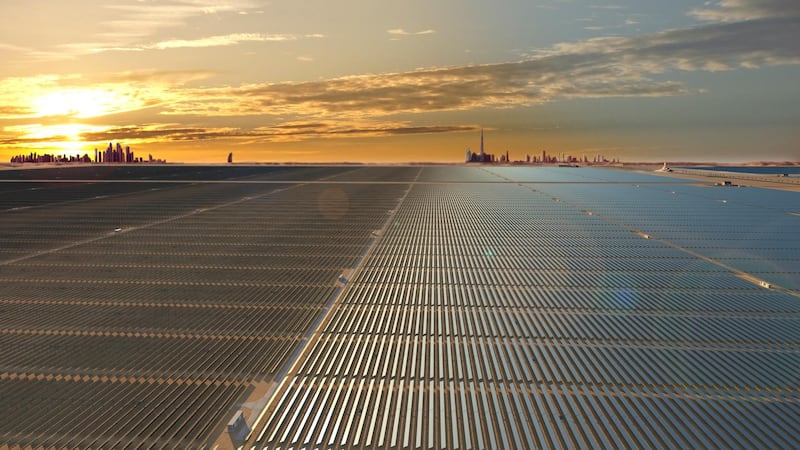Dubai Electricity and Water Authority (Dewa) plans to generate energy savings of up Dh82 billion by 2030 after retrofitting more than 30,000 buildings in the emirate.
"If you look at the retrofitting, we noticed that the savings [are] valued between 25 to 40 per cent, so we wanted to be in the middle and calculated that as 30 per cent," Waleed Salman, executive vice president, business development and excellent at Dewa told The National.
The announcement comes amid growing interest in energy efficiency in the UAE and across the Middle East as economies look to lower energy intensity and add cleaner forms of energy to their grids. Dubai has saved about Dh1.2bn over the past decade due to its efforts to conserve electricity and water and plans to reduce carbon emissions by 16 per cent by 2021 as well as energy and water use by 30 per cent by 2030, according to latest estimates from Dewa.
The utility aims to roll out a large number of retrofit projects and accrue energy savings of 182.6 kilowatt hours by 2030. The cumulative costs to drive Dubai’s efficiency programme up to 2030 are estimated to be around Dh30bn.
Dewa also plans to deploy up to 554 photovoltaic panels on the rooftops of homes in the Dubai exclave of Hatta and retrofit 2,092 facilities and buildings in emirate in partnership with Etihad Esco.
Etihad Esco, which manages large energy efficiency projects in the UAE and is known as a "Super Esco", is currently executing 18 projects, including major retrofitting at Dubai International Airport terminals one, two, three as well as concourse B.
The company is targeting Dh500m worth of energy savings by 2030 from multimillion-dollar projects, primarily from retrofitting and solar rooftop deployment. Etihad Esco had originally set targets of 20 per cent energy savings by 2021 and 30 per cent by 2030. Those initial targets have already been exceeded with plans underway to revise targets, according to the company.
The Super Esco is currently mulling rollout of an energy efficiency programme targeting industry, starting with Dubai’s large logistics sector.







